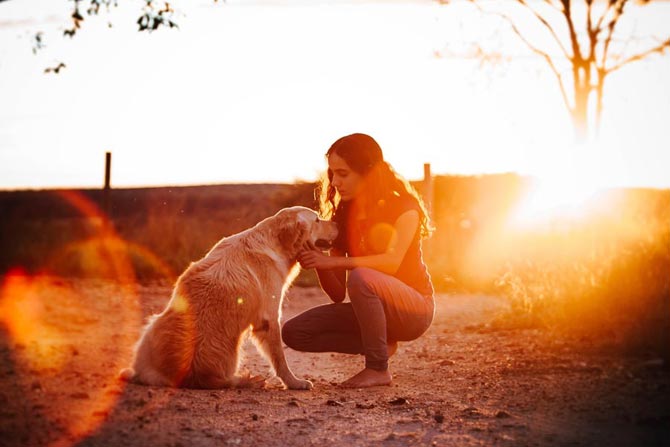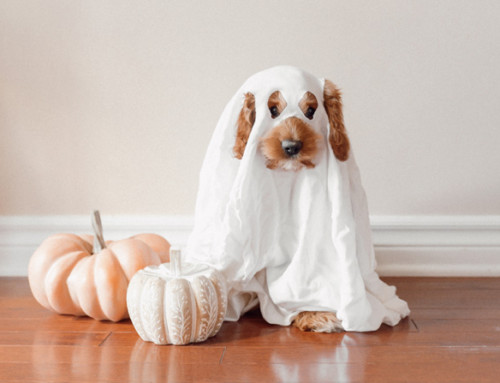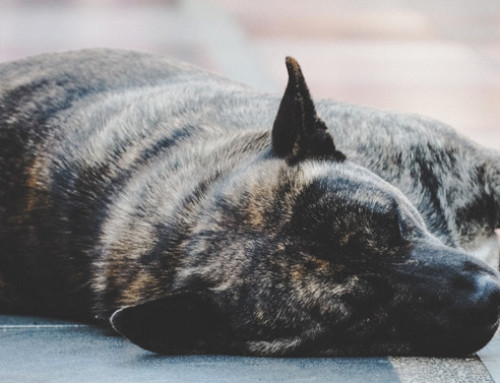Just thinking about your beloved fur pal passing away is sad enough, so what happens when the time actually comes to say farewell to your furry friend?
There is no denying coping with the loss of a pet can be challenging. After all, we enjoy an intense and loving bond with our pets. For most pet parents, their pet is considered a member of the family — their fur baby!
Aside from the love and affection we have for our pets, our four-legged friends also help to shape our lives. They become part of our daily routine. So, when your dear fur pal passes away it’s completely normal to feel immense grief and a huge sense of loss.
Self-care after the loss of a pet
Certainly, everyone experiences grief in different ways—even within the same household. However, it’s important to recognise the grieving process and to allow yourself time to process these new feelings.
Here are 4 strategies that may help you work through your grief following the death of a pet.
1. Allow yourself enough time to grieve
Sure, there’s no one-size-fits-all plan when it comes to dealing with grief, but it is important to remember that the grieving process takes time. Again, this is different for everyone.
It’s essential to understand that following the loss of a pet it’s likely you’ll feel many different emotions. Sadness is the most common and immediate feeling people experience when a pet dies. However, it’s also common to feel anger.
Particularly in cases where the loss of a pet is the result of someone else’s actions, it’s completely normal to feel angry. Yet, even if no one was to blame, you can still feel angry because your cherished pet has been taken away from you.
The point is it’s okay to feel whatever emotions you’re feeling. Remind yourself that these emotions, be it sadness, anger or even guilt, are normal and acceptable.
2. Cherish the memories
As part of the grieving process, it can be helpful to memorialise a deceased pet. Creating a memory spot or place can assist you to work through your emotions, while also keeping the memory of your beloved fur pal alive.
There are many different options and ways to memorialise a pet. Here are a few examples:
- Place a seat or bench in a calm, quiet area of the garden with a plaque dedicated to your fur baby.
- Plant a tree or shrub in honour of your pet. Every time you look at the tree or plant you’ll think of your four-legged friend.
- Place a photo of your pet in a special place in your home. Every time you see the picture it’ll remind you how much your furry pal meant to you.
These are just some of the ways you can memorialise your pet. There are many other options and you can always think outside the square!
3. Take care of yourself
Following the loss of a pet, it’s really important to take good care of yourself. You may feel down in the dumps, and that’s totally normal, but it’s important to keep doing the things you enjoy.
Grief can affect our sleeping patterns, our appetite and our motivation. So, it’s important to be mindful of this and to try your best to continue to eat well, get enough sleep and push yourself to do the activities that make you feel happy.
Including a few minutes of mindfulness in your day can be helpful for clearing your brain and encouraging yourself to get out and about. You might try sitting in a quiet, comfortable spot and meditating, using breathing techniques to help focus your mind or doing tai chi to bring relaxation.
Whatever you choose to do, it’s important to try your best to stay motivated while working through times of sadness and grief.
4. Create new routines
Pets can become a big part of our daily routine, particularly when you have more than one pet. So, when a pet dies your routine can be thrown into disarray.
If you have other existing animals, it’s important to continue with their daily routine and not to disrupt their process. In some ways, this can make things easier. However, if you don’t have other pets it’s important to maintain a routine, even if it is now slightly different.
For example, if you walked your dog every morning perhaps you can invite a friend or neighbour to walk with you. Not only will this give you someone to talk to and some company, but it might also help lessen the sadness of no longer having your fur baby with you.
Building a new routine without your furry friend will be hard, but the feelings of pain and loss will reduce over time.
Have you lost a pet? How did you cope with the grieving process?
Want to read more about losing a pet? Take a look at these related posts:
- Coping with the loss of a family pet (and how it affects children)
- Pet burial vs cremation
- Making the decision to put down your pet
Image source: Unsplash







Leave A Comment